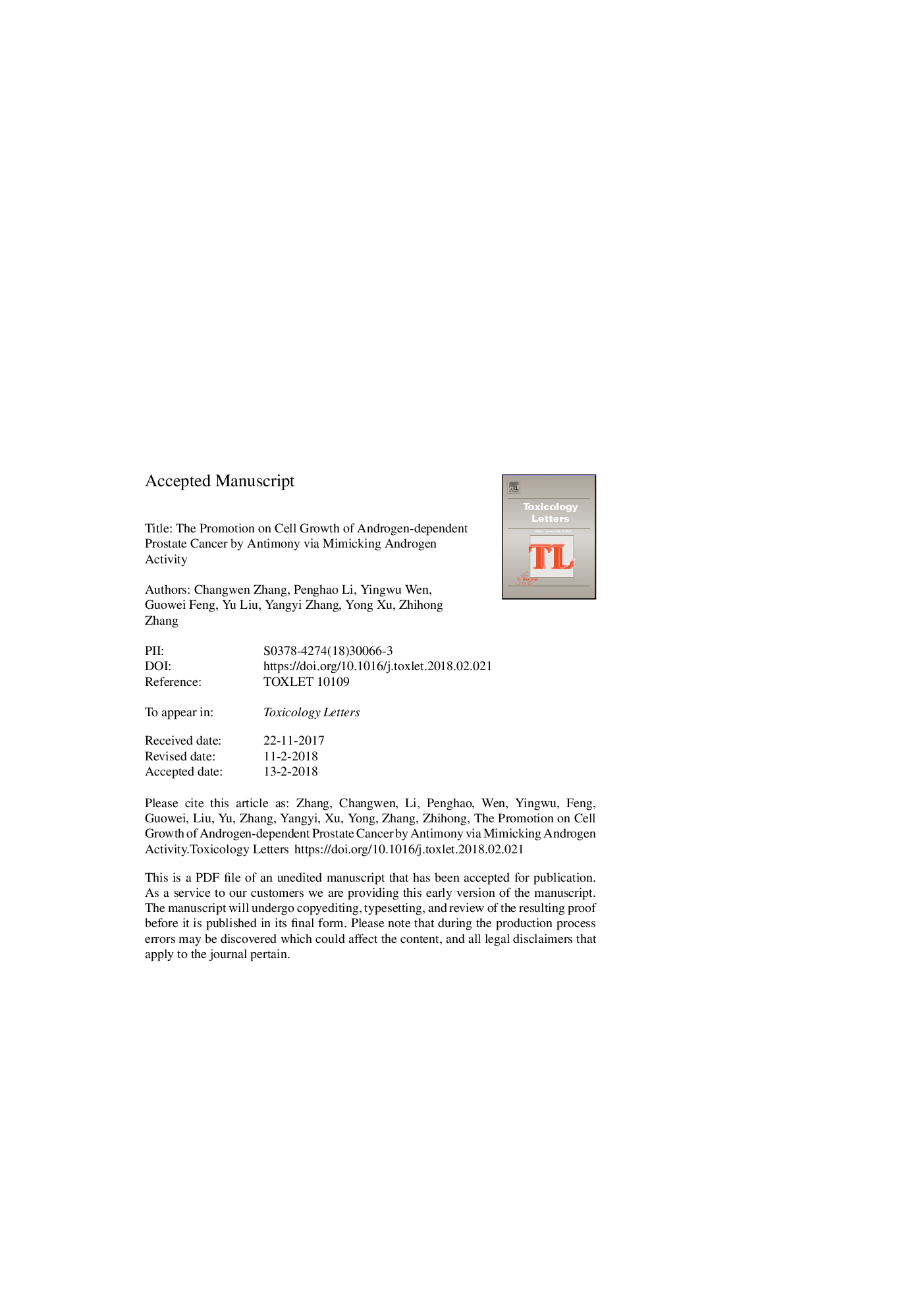| Article ID | Journal | Published Year | Pages | File Type |
|---|---|---|---|---|
| 8553371 | Toxicology Letters | 2018 | 20 Pages |
Abstract
Antimony is a widely used heavier pnictogens in industry, and its toxicity has been a matter of concern. Although previous studies have suggested that antimony may have the function as either a tumor suppressor or an oncogene in several cancers, the molecular basis underlying antimony-mediated transformation is still unclear. In the current study, we attempt to elucidate the potential role of antimony in the development of prostate cancer. Our results showed that the concentration of antimony was much higher in serum of prostate cancer patients, and was closely associated with poor outcome of patients who underwent radical prostatectomy. Additionally, low dose of antimony could promote proliferation and invasion of androgen-dependent prostate cancer cell line LNCaP cells in vitro and in vivo. The mechanistic studies demonstrated that exposure to antimony triggered the phosphorylation of androgen receptor (AR), which transcriptionally regulates the expression of androgen-related targets, including PSA and NKX3.1. Overall, our results unearthed that antimony could promote tumor growth by mimicking androgen activity in androgen-dependent prostate cancer cells. Therefore, these findings expanded our understanding on the molecular mechanism of antimony in tumorigenesis and tumor progression of prostate cancer, and it appears to be an inspiring strategy to restrain prostate cancer by inhibiting antimony-induced androgen-like effects.
Keywords
BicalutamideDHTIGFABSCASqRT-PCRpTHAREsantibodiesantimonyIARC یا International Agency for Research on CancerInternational Agency for Research on CancertestosteroneDihydrotestosteroneCell growthInsulin-like growth factorBenign prostatic hyperplasiaBPHquantitative real-time polymerase chain reactionpatAndrogen Receptor
Related Topics
Life Sciences
Environmental Science
Health, Toxicology and Mutagenesis
Authors
Changwen Zhang, Penghao Li, Yingwu Wen, Guowei Feng, Yu Liu, Yangyi Zhang, Yong Xu, Zhihong Zhang,
